Dr. Ahmed Abdul Hameed Al Shaikh
Director, Bahrain Institute of Banking & Finance
Driving the Human Capital Agenda
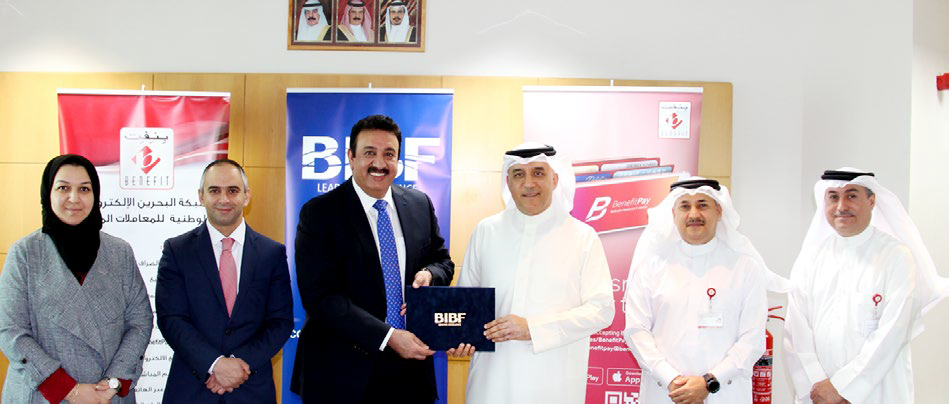
Q1. ISFIRE has a global distribution and our readers come from all over the world. Kindly share with us your personal approach to Islamic banking and finance (IBF). As Director of BIBF, how has BIBF contributed to the development of Islamic banking and finance in Bahrain and globally?
The BIBF was established in 1981 and is the training arm of the Central Bank of Bahrain. We have 7 learning centres including Banking, Accounting and Finance, Leadership and Management, IT and Project Management, Insurance, Academic Studies and of course Islamic Finance. Since inception, we have trained over 340,000 individuals in 63 countries. Within Bahrain, the BIBF continues to be the backbone of the financial sector as most employees of financial institutions have been trained at the BIBF, be it at entry level, technical or professional training or executive development or board level training.
The Islamic Finance Centre was established in 1997 and has the unique distinction of being the oldest Islamic finance professional qualification provider in the world. We strive to facilitate not only the local but also the global Islamic finance industry – by providing holistic solutions such as consultancy and product development apart from training. We have worked with Central Bank entities of different jurisdictions within the GCC and beyond to enable regulators to better appreciate the workings of Islamic banking and finance. We have also provided Islamic finance trainings to infrastructure institutions such as the World Bank among others.
Moving forward, to reach a wider audience, we have leveraged technology and BIBF is the only institute globally to exclusively partner with AAOIFI and IFSB on e-Learning. We are also launching our flagship Advanced Diploma in Islamic Finance (ADIF) as a distance learning programme and have used virtual classroom software to deliver courses outside Bahrain,
Q2. You have had an illustrious career, most recently with Labour Reform Project. Now you’re running an institute that arguably has one of the best centres of excellence in Islamic finance in the world. How does your current role excite you professionally and personally?
For me, professional and personal satisfaction are intertwined. The fact that at the BIBF we are continuously trying to raise the competency levels of our trainees to make them competitive internationally is my major challenge as well as a motivating factor.
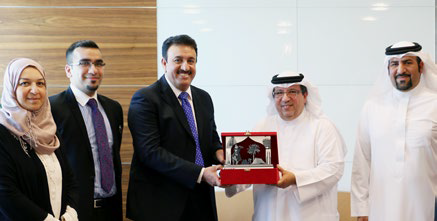
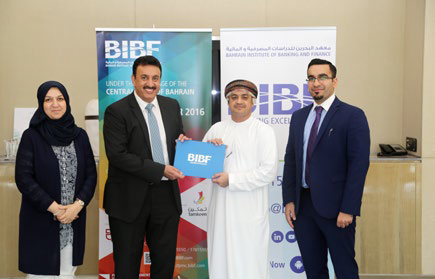
Q3. Bahrain is big on an Islamic banking and finance agenda. How do you position BIBF in the overall landscape of IBF in the country, in the region and globally?
As mentioned earlier, the BIBF is the training arm of the Central Bank of Bahrain and the Islamic Finance Centre is the oldest Islamic finance professional qualification provider in the world. Both these unique attributes help us get insight into the market gaps and requirements. Moreover, the Islamic Finance Centre has an advisory board, which includes international industry experts such as Shaikh Essam, Mr Ijlal Alvi and Mr Ashar Nazim among others. The Centre also works closely with HR managers of Islamic banks in Bahrain and each year, the Masterclasses offered are based on the feedback of the industry.
From a global perspective, the Islamic Finance Centre works with Central Bank entities as well as financial institutions. We also work with universities in the UK to develop their Islamic finance modules and have developed the IFQ Level 2 qualification for the Chartered Institute of Securities and Investments (CISI). To further its international footprint, the Islamic Finance Centre is leveraging technology with its e-Learning strategy (mentioned earlier). The Centre is also launching the Islamic Finance Management Development Programme in partnership with the Coventry University, to be held at CU in July this year.
Q4. Islamic banking and finance is significant in terms of size and proportion in the Bahrain financial sector. Some analysts believe that further growth in the sector will pose a real challenge and that it will be extremely difficult for Islamic banks and financial institutions to cannibalize conventional banking and financial business beyond the current market share.
Does it mean that Islamic banking and finance will never have a market share of 50% or more in Bahrain?
I believe that Islamic banking has a much larger role to play within the financial sphere but it is imperative to have a strategy rethink. We saw that post 2009 financial crisis, Islamic banking in some Western countries received remarkable attention. This was mainly due to the fact that it was seen as an ethics-based alternate value proposition for the financial system. Islamic banking can also increase financial inclusion and if done in a proper manner, can lead to more equitable distribution of wealth in society. Therefore, I strongly believe that if Islamic banking is to play a larger role globally, it needs to be positioned as a viable, ethical alternative.
Within Bahrain and Muslim-majority countries, again, growth is dependent on how Islamic banking positions itself. New technological disruptions taking place should be welcomed rather than seen with skepticism. Islamic banks in Muslim countries can significantly increase their market shares if they effectively harness technology and offer innovative products catering to the needs of the clients. For example, majority of the global Muslim demographic consists of young people but Islamic banks have largely ignored that and there are not many product catering to young professionals.
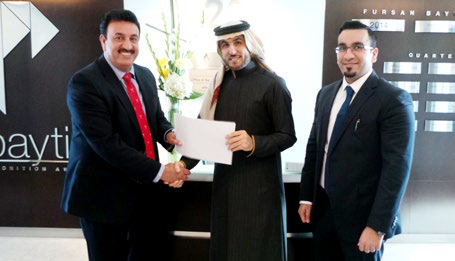
Q5. The world is fast becoming orientated towards the use of social media. What role can social media play in creating awareness around Islamic banking and finance?
I believe that social media is an efficient tool to reach a large audience as well as directly interact with them.
The BIBF has a strong social media presence in all major platforms such as Facebook, LinkedIn and Instagram.
The Islamic Finance Centre is in the process of launching an Islamic finance awareness campaign to increase the understanding of the general public regarding Islamic banking products. The whole idea is to counter the rampant misconception and scepticism about Islamic banking. A major chunk of this campaign will see the use of social media to get the message across to a wider audience.
Q6. Bahrain is one of the few examples of countries where governments are extremely supportive of Islamic banking and finance. BIBF is also a direct beneficiary of the generous support and patronage of the government. Will it be harder for BIBF to assume a global leadership role without such a support?
The BIBF is a not-for-profit institute; therefore, we follow quality and not revenue. All the profit that the BIBF generates is invested back to further improve quality. This has been the major contributing factor of gaining the trust and support of the government. Of course it would have been a challenge to reach where we are without the support we received. The leadership in Bahrain has always given priority to human capital development in the kingdom.
This local support and trust has helped us in building an international footprint where we have been approached by the likes of the World Bank, universities in the UK, CISI, central banks and global
Islamic financial institutions as Islamic banking subject matter experts.
Q7. Please share with us how technology has improved pedagogy of Islamic finance. What challenges do you perceive in the wake of growing role and influence of Blockchain technology?
The BIBF is a thought leader and we always follow global best practices, especially when it comes to leveraging technology. I strongly believe that we have to grow and change with the rest of the world.
The BIBF was the first in the Middle East to have a Simulated Dealing Room. When it comes to the Islamic Finance Centre, our strategy for the past 3 years has been on effectively leveraging technology to facilitate the global Islamic finance industry. We have developed the first Islamic banking simulation in the world. This software exposes the trainees to all aspects of an Islamic bank including the Balance Sheet and P&L Management, Treasury Function, Asset Liability Management, Operations and Marketing. The software also poses different scenarios to the trainees and the trainer can assess the responses. This also helps the trainees appreciate the effect of their decisions on the financial statements.
As mentioned earlier, BIBF is the only entity in the world exclusively working with AAOIFI and IFSB on e-Learning. The future direction is to have a holistic Islamic finance portal, which includes e-learning trainings for AAOIFI Standards, IFSB Standards, IIFM Contracts and BIBF’s own training content (including training for front-facing staff of Islamic banks). The portal shall also have news and reports pertaining to the Islamic finance industry and students will be able to block one on one tutoring sessions with BIBF faculty.
Q8. Can you please share with us details on your flagship Islamic finance course?
The BIBF’s flagship Islamic banking course is the Advanced Diploma in Islamic Finance (ADIF). Having been launched more than 20 years ago, it is one of the oldest Islamic finance professional qualifications in the world. It has six modules which cover all aspects of Islamic banking and finance and is mandated by the Central Bank of Bahrain for control positions.
It is the only Islamic finance professional qualification in the world to have a progression route into a UK MBA, whereby, ADIF graduates need to spend 1 month intensive at the University of Bolton, complete a thesis after which they are granted an Executive MBA from the University of Bolton. ADIF graduates also receive two exemptions from AAOIFI’s CIPA qualification and CIPA holders also receive two exemptions for the ADIF. Therefore, ADIF graduates in 1.5 years can have two professional qualifications in Islamic finance as well as an Executive MBA from the UK.
We are in the process of launching the ADIF as a distant learning programme with the option of online classes.
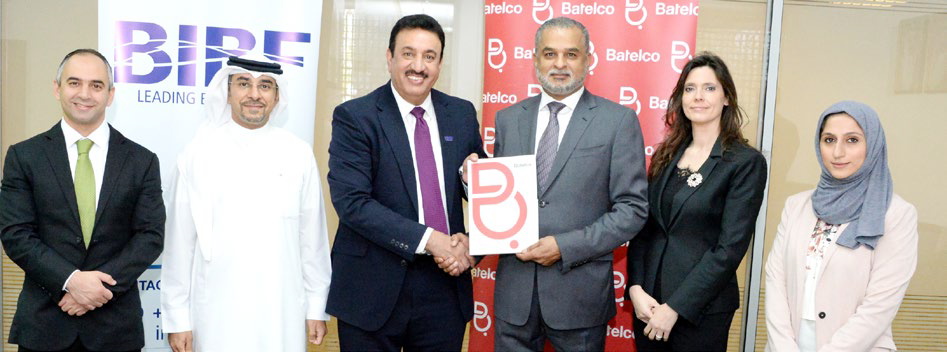
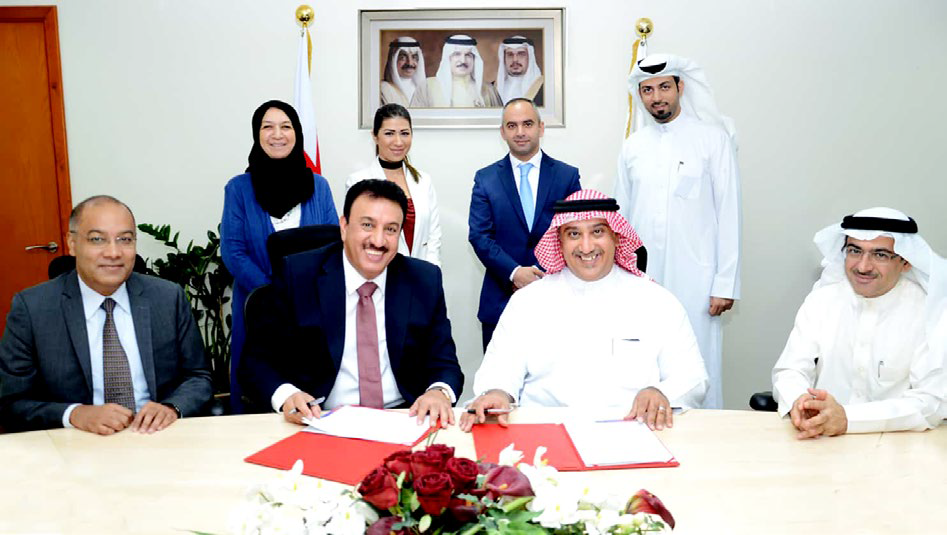
We are also in talks with Coventry University (ranked 13th in the UK) to have a similar arrangement as with the University of Bolton but for an MSc route.
More details can be found at www.bibf.com/adif/
Q9. The GCC is passing through a very critical stage at present. What is the future of Islamic finance in the wake of the current developments?
From what I have seen, all countries in the GCC are very keen on promoting Islamic banking and finance. Low oil prices have posed liquidity problems to the GCC but we have seen that Sukuk issuances have been used by both corporates and sovereigns to counter this. Going forward, I believe Islamic finance products can be used effectively for infrastructure financing in the GCC.
Q10. You travel extensively. Which Muslim-majority country has really impressed you and why?
For me, two Islamic countries stand out; Turkey and Malaysia. These countries have the right vision and the right competencies to execute that vision. They focus more on human capital development, which has led to the economic growth of the countries.
Q11. Please share with the readers a typical day of Dr Ahmed Abdul Hameed Al Shaikh. How it starts and what are must on the to-do list on a daily basis?
I believe in the power of networks therefore my schedule revolves around meeting with all stakeholders to understand how we can improve and be more market-oriented. I also meet every week with my management team to discuss projects in the pipeline and give any support that may be needed.
Q12. What would be your message to the global Islamic financial services community, particularly the youth?
I believe that the next generation will be the one to take Islamic banking to the next level. There are obviously huge challenges and gaps within the Islamic finance industry and to fill them, the industry requires out-of-the-box thinking and more creativity.
I am also a strong proponent of maintaining a high level of ethical behaviour and hard work.
Q13. Anything else you want to highlight about BIBF?
I am strong believer that education should not be commercialized and educational institutes should be non-profit. The focus of educational institutes should be quality and we at the BIBF do not compromise on quality



